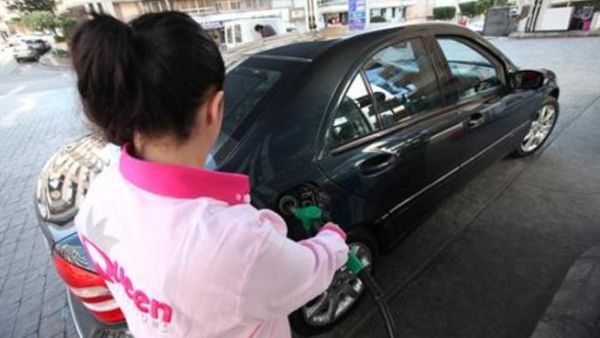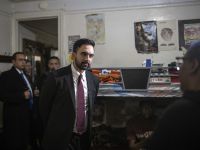Women pumping gas might seem like a strange sight in Lebanon. But that could change with the Queen, the first and only gas station in the country run and operated by women.
“Of course, people were shocked at first. But now they’re used to it,” says Samar Dakdouk, the gas station’s manager. “Now, people are happy about it, and they come because of the good service.”
Queen: “a gas station with a feminine sensation” as it labels itself was opened with the idea of giving women the opportunity to work in a traditionally men’s job. The station was established by Merhi Abou Merhi, an expatriate who lives in Switzerland until returning in 2001 to his native Sidon, where he began a series of renovation projects in the southern coastal city, including repaving roads.
The gasoline station near the city center, which was established last February, is well known by locals. At first, some people in this largely conservative area were reluctant to accept the idea of a women’s gas station. But as the community got used to it, many embraced the idea, some – particularly women – preferring their customer service, cleanliness and wide variety of products.
In addition to filling tanks, this includes detailed car washes, as well as a two-storey shop with a Pain d’Or bakery and brand-name imported food and cosmetic items.
The gas station sits on a hill, just above the city center. There, young women, from Sidon and some of the surrounding villages, pump gas for customers, wearing their trademark pink sweaters.
“At first it was hard to find employees, because as far as I know it’s the first time there’s something like this in the Arab world,” acknowledges Dakdouk, who used to help her brothers at their gas stations when she was living in the U.S. “The concept is a VIP gas and car cleaning service by women. It’s good for our patriarchal society.”
And indeed it also appears to be good for the women employees at the station, who work eight-hour days, six days a week, earning $600 per month.
“They’re so happy because they’re doing something special,” Dakdouk says. “In Sidon, everyone knows each other, and the people have gotten to know us.”
Ward Osman, who works as a cashier at the Pain d’Or Bakery, and who hails from the village of Najarieh, near Zahrani, says that at 29 this is the first time in her life working outside the house.
She says she likes the atmosphere of working with other women, describing it as a “comfortable atmosphere, like being with sisters. We work as a team and we help each other.”
She adds: “Samar doesn’t let anyone get unhappy. We call her the queen.”
Aya Khairy Baik, 20, who has been working at the pump for the past two months, says it’s much better than her previous job at a mall. Before starting work at Queen, she admits that she never knew how to pump gas, always relying on men to do it. Now, she says, she likes being able to prove “we can do a man’s job.”
But it’s not all women who work at Queen. A few men who are proud of the station’s concept work both at the pumps and at the convenience store.
Samer Aghwati, 18, says: “There’s no reason why women shouldn’t pump gas. Some people say it’s shameful. But I think: why not? People need to get used to it.”
By Brooke Anderson








